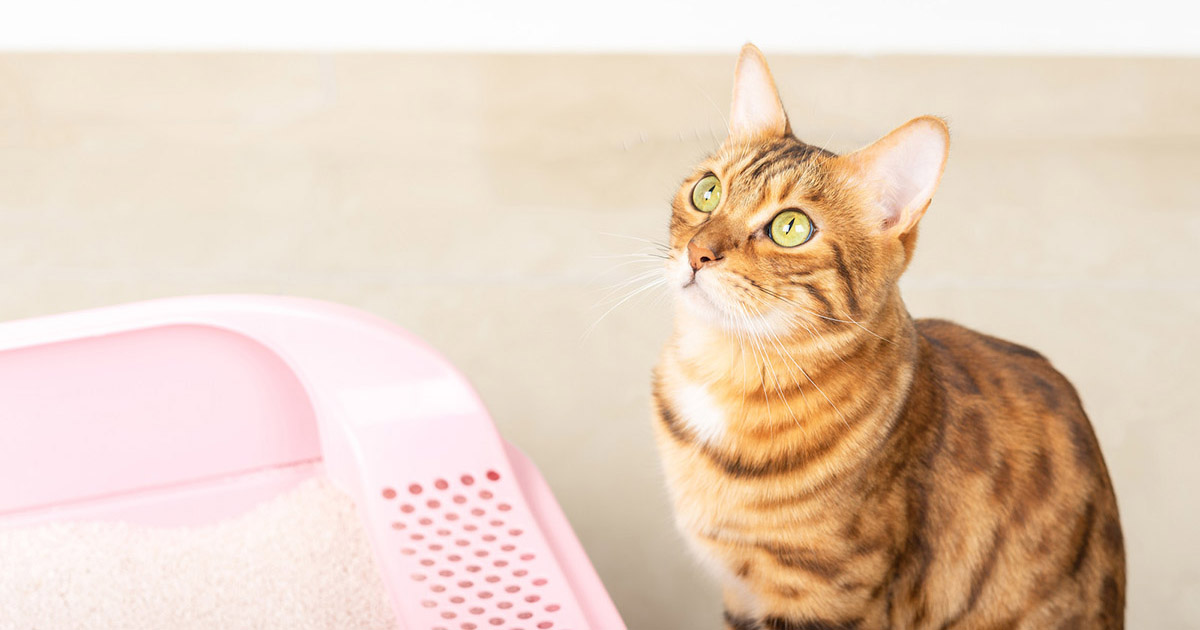Reasons Flushing Cat Poop Down Your Toilet Can Cause Problems - Tips for Safe Disposal
Reasons Flushing Cat Poop Down Your Toilet Can Cause Problems - Tips for Safe Disposal
Blog Article
On this page in the next paragraph you can locate a good deal of professional resources relating to Can You Flush Cat Poop Down The Toilet?.

Introduction
As feline owners, it's important to bear in mind how we take care of our feline buddies' waste. While it may appear practical to flush cat poop down the toilet, this technique can have detrimental consequences for both the atmosphere and human health and wellness.
Alternatives to Flushing
Luckily, there are more secure and much more liable means to dispose of pet cat poop. Take into consideration the following options:
1. Scoop and Dispose in Trash
The most common technique of throwing away cat poop is to scoop it right into a naturally degradable bag and toss it in the trash. Make sure to make use of a committed trash scoop and take care of the waste quickly.
2. Use Biodegradable Litter
Go with biodegradable cat trash made from products such as corn or wheat. These litters are environmentally friendly and can be securely taken care of in the garbage.
3. Bury in the Yard
If you have a yard, think about burying feline waste in a marked area away from veggie gardens and water resources. Be sure to dig deep enough to prevent contamination of groundwater.
4. Install a Pet Waste Disposal System
Invest in a pet dog waste disposal system particularly designed for feline waste. These systems use enzymes to break down the waste, reducing odor and ecological effect.
Health and wellness Risks
Along with ecological problems, purging cat waste can also posture health dangers to humans. Pet cat feces may include Toxoplasma gondii, a parasite that can create toxoplasmosis-- a possibly serious disease, particularly for expectant women and individuals with weakened immune systems.
Ecological Impact
Purging feline poop introduces dangerous virus and parasites right into the supply of water, posing a significant risk to aquatic communities. These contaminants can negatively affect aquatic life and concession water top quality.
Conclusion
Accountable animal ownership prolongs past giving food and shelter-- it also involves appropriate waste monitoring. By avoiding purging cat poop down the commode and selecting alternative disposal approaches, we can minimize our environmental footprint and safeguard human health.
Why You Should Never Flush Cat Poop Down the Toilet
A rose by any other name might smell as sweet, but not all poop is created equal. Toilets, and our sewage systems, are designed for human excrement, not animal waste. It might seem like it couldn’t hurt to toss cat feces into the loo, but it’s not a good idea to flush cat poop in the toilet.
First and foremost, assuming your cat uses a litter box, any waste is going to have litter on it. And even the smallest amount of litter can wreak havoc on plumbing.
Over time, small amounts build up, filling up your septic system. Most litter sold today is clumping; it is made from a type of clay that hardens when it gets wet. Ever tried to scrape old clumps from the bottom of a litter box? You know just how cement-hard it can get!
Now imagine just a small clump of that stuck in your pipes. A simple de-clogger like Drano isn’t going to cut it. And that means it’s going to cost you big time to fix it.
Parasitic Contamination
Believe it or not, your healthy kitty may be harboring a nasty parasite. Only cats excrete Toxoplasma in their feces. Yet it rarely causes serious health issues in the cats that are infected. Most people will be fine too if infected. Only pregnant women and people with compromised immune systems are at risk. (If you’ve ever heard how women who are expecting are excused from litter cleaning duty, Toxoplasma is why.)
But other animals may have a problem if infected with the parasite. And human water treatment systems aren’t designed to handle it. As a result, the systems don’t remove the parasite before discharging wastewater into local waterways. Fish, shellfish, and other marine life — otters in particular — are susceptible to toxoplasma. If exposed, most will end up with brain damage and many will die.
Depending on the species of fish, they may end up on someone’s fish hook and, ultimately on someone’s dinner plate. If that someone has a chronic illness, they’re at risk.
Skip the Toilet Training
We know there are folks out there who like to toilet train their cats. And we give them props, it takes a lot of work. But thanks to the toxoplasma, it’s not a good idea.

Do you like more info about How to Dispose of Cat Poop and Litter Without Plastic Bags? Make a short review further down. We'd be glad to know your thinking about this piece. Hoping that you come back again in the near future. Sharing is nice. Helping people is fun. I recognize the value of reading our article about Don’t flush cat feces down the toilet.
View More Report this page